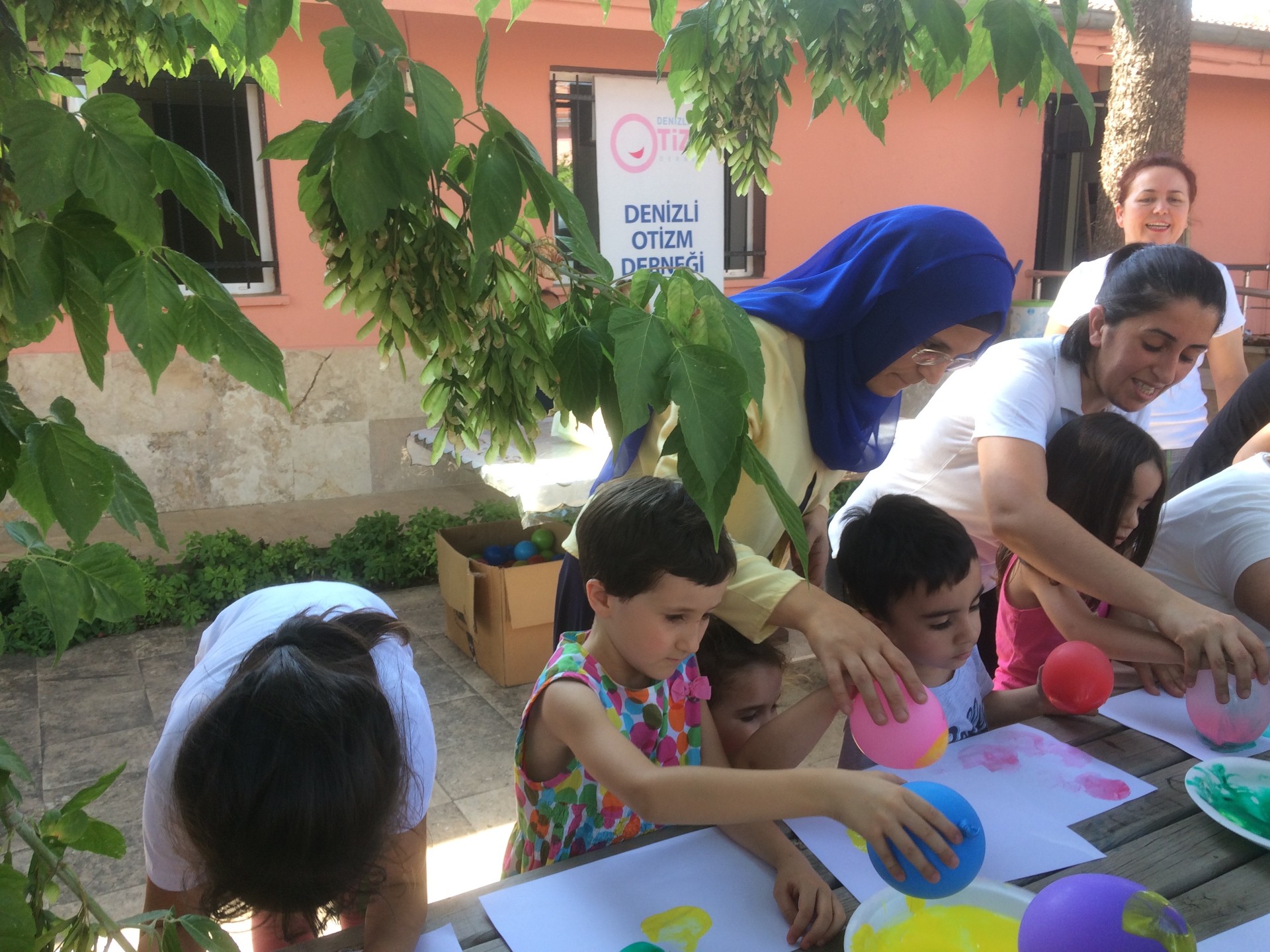
“Autistic Rights Are Human Rights” — A Decade of Impact
In 2014, a small group of Denizli parents gathered around a shared truth: their children, all on the autism spectrum, deserved more than isolated care and silence. They deserved dignity, education, support, and rights. Out of that conviction, the Denizli Autism Association (DOD) was born.
What began as a grassroots response to daily struggles has grown into one of Türkiye’s most active autism advocacy organisations. Over the last decade, DOD has become a bridge between families, institutions, and policy, advocating locally, nationally, and now internationally, with the support of EU-funded programmes that helped sustain, structure, and amplify its work.
“Autistic individuals in Türkiye face discrimination in almost every domain — from education to health, employment to everyday social life,” says Dudu Karaman Dinç, DOD’s president and the mother of an autistic child. “We wanted to make sure their rights were not only recognised, but protected — in real terms.”
Starting Small, Thinking Big
From the beginning, DOD positioned itself primarily as a rights-based organisation, as well as a service provider. It offered free legal counselling, educational guidance, and family support, but also introduced innovative programmes that challenged the status quo, such as Türkiye’s first reverse inclusion summer schools, where autistic and neurotypical children learned together.
Art and music workshops soon followed. The goal was not to “integrate” autistic children into existing systems, but to create new spaces where difference was welcomed.
At the same time, DOD began shaping policy. It joined the Türkiye Autism Assembly (TOM), a national network of civil society organisations, and played a key role in establishing the Parliamentary Research Commission on Autism. Later, it helped monitor the Second National Autism Action Plan, in direct dialogue with state ministries.
These were not symbolic gestures. DOD advanced detailed proposals, submitted formal reports, and insisted that families be involved in every decision.
“We don’t just raise awareness — we ask tough questions,” Dudu says. “We follow up. We stay at the table.”
From Denizli to Brussels
In 2019, with support from the EU Sivil Düşün Programme, DOD travelled to Germany and the Netherlands to learn from other autism organisations. What they found transformed their vision.
They realised that international collaboration wasn’t just beneficial — it was essential. That same year, they began developing an international strategy, and by 2020, with help from the EU-funded Support to Rights project, they joined Autism Europe, becoming Türkiye’s first member.
The shift was subtle but profound. Now, DOD was not only advocating within Türkiye but also sharing and learning across borders. They participated in congresses, visited centres in Spain and Belgium, and eventually began mentoring other organisations on how to connect local needs with global standards. In May 2024, the journey came full circle: Dudu Karaman Dinç was elected to the Board of Directors of Autism Europe.
But for DOD, this wasn’t the finish line. It was simply another step in a longer journey — one that had always been about building bridges.
Strength in Community
By 2024, DOD’s identity had expanded — both in scale and in depth. That year, it co-led an EU-funded project, “Stronger Together Against Discrimination,” and travelled to five cities across Türkiye — from Istanbul to Samsun — bringing together 41 autism organisations.
These were networking events, but more importantly, they were moments of mutual empowerment. Associations shared tools, submitted human rights complaints, and learned how to support each other’s work. The sense of fragmentation began to shift — slowly, intentionally — toward a more unified movement.
“We’ve grown, yes — but we’ve also helped others grow,” Dudu says. “That’s what matters most. This is how change becomes sustainable — not from above, but side by side.”
This same spirit shaped DOD’s internal evolution. With support from the BİRLİKTE Programme and the second phase of Support to Rights, the organisation focused on deepening its roots. It hired two staff members, launched a small social enterprise, produced its own human rights journal, Farklı, stregthen its its office, and built systems that would last.
It wasn’t glamorous work, but it was the kind of foundation that advocacy depends on, especially in Türkiye’s shrinking civic space.
Then came the earthquake of February 2023.
In the days after the disaster, DOD mobilised to gather information from families affected. They spoke to parents whose children were overstimulated by noise in the shelters. They heard stories of unmet medical needs, untrained emergency staff, and children who had disappeared in the confusion.
Rather than let those stories fade, DOD recorded them. The result—Act for Autistic Earthquake Survivors—became a reference point for more inclusive disaster response policies.
This, too, is part of their advocacy: turning testimony into action.
A Decade of Movement, A Future of Dignity
Looking back, DOD’s path wasn’t linear—it was layered. One workshop turned into a policy meeting, one report became a national recommendation, and one study visit became an international role.
“We didn’t wait for change — we built it,” Dudu reflects. “Step by step. Meeting by meeting. Sometimes quietly, but always persistently.”
Today, DOD is shaping the characteristics of the national autism movement: evidence-based, peer-led, inclusive, and sustainable.
And it continues to ask a simple question that carries enormous weight: What would Türkiye look like if autistic people were truly included in every part of life?
“We’ll keep going,” Dudu says. “Until every autistic person in Türkiye lives not just with protection, but with full dignity.”
